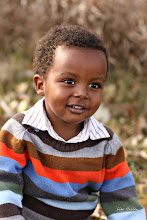Steve and I returned from Louisville Sunday after attending the Orphan Summit. First of all, this was yet another humbling experience for me. We arrived on Wednesday to take in the "FREE TO LIVE" tour with the Desperation Band, Merideth Andrews and an appearance by Children's Hopechest's CEO Tom Davis.
The worship was amazing! The tour is focused on raising awareness for human trafficking - something close to my heart. Midway through the concert, they showed a video of a girl named Sasha from Russia. Through a translator, Sasha told her story of how after aging out of an orphanage, she was lured in by men who did terrible things to her. Sasha was able to escape and was taken in by one of Children's Hopechest's rehabilitation homes for trafficked girls. Through their help, Sasha has been able to hold down a job, is now married and has a beautiful two year old daughter with her husband.
Watching the video of her describing how God transformed her life through people who she could trust, brought on the tears.
Then, guess what? They surprised us all by bringing Sasha out on stage! They flew her from Russia to the US to be part of the tour! This was her first time ever on a plane - beautiful young woman, beautiful two year old daughter, beautiful story of redemption.
Like I said, this was an incredible concert and time of worship but the highlight of this evening was that we GOT TO MEET TOM DAVIS!! He is one of my favorite authors! I'm a HUGE FAN!! I brought his book "Scared", for him to sign for Lauren. She is also a big fan of his. I have had communications with Tom before this conference (advocating for ministries in Haiti and Ethiopia) but this was my first time to meet him in person.
We also met Merideth Andrews and John, the lead singer of the Desperation Band.
The very next morning, Steve and I attended Tom Davis' workshop on human trafficking. We heard more heart wrenching stories and learned of shocking statistics. One that sticks out in my mind is that there are 20,000 children trafficked from Ethiopia alone each year! He talked about how prevention is the KEY! Rescuing is messy and dangerous and rehabilitation is lengthy and costly. The easiest way to help combat human trafficking is through prevention.
The general sessions throughout the conference were loaded with amazing testimonies of how lives have been changed. One testimony that will forever be in my memory is the interview between Dennis Rainey, Bob Lapine and Carolyn Twietmeyer. If you don't already know about Project Hopeful, go take a look and read about this incredible ministry that comes along side parents through HIV adoptions. We also had an opportunity to meet Carolyn and her husband Kiel. Very down to earth, personable couple!
One of the biggest eye openers of the conference was what we learned from speaker and author of "When Helping Hurts", Brian Fikkert. Wow! EVERYTHING he said made sense! The most convicted I have been in a long time! Lots of OUCH moments!
The big picture to understand and come away with is that as Westerners, we often times think that we know the answers to how to fix poverty. We arrive in developing countries with a savior attitude. What we think the problem is impacts how we respond and what we do. But too often we go into a developing community with a superior attitude, thinking we are better because we have the so called resources to "help", not aware that as we get more prideful, they get more shame.
The western culture defines poverty in material terms. Around the world, the answers about poverty are more sociable, such as low self esteem, shame, etc.
But poverty is about broken relationships.
So, the first steps to take towards poverty alleviations are to repent of a material understanding of the world, then repent of our pride and god-complexes. Lastly, repent of the health and wealth or prosperity Gospel.
When we look at poverty as being rooted in relationships, we are all poor. We are all broken. Unless we can admit to our own brokenness and repent, we will be ineffective in the lives of those we try to come along side.
Fikkert also talked about how we can often times be the cause to someones material poverty. He gave the following example to illustrate how we can be enablers instead of helping:
Mary is a woman who has been standing outside the same McDonald's for years asking for money. People who live in the area are familiar with her and give her money each time they see her. Why has Mary been there for years? It's because people still give her money. But money is not what Mary needs. What she needs is someone to come along side her to help her realize her gifts and give her guidance to find a way to make a living by using her gifts and talents. But this is easier said than done. It's easy to just give money. It's not as easy to give of our time.
He also gave the example of how us Westerners like to bring things like clothing and shoes to hand out to the poor. When we do this, we may be putting local shoe makers and seamstresses out of business.
We can do more harm when we provide relief in a situation that calls for development. Relief is needed only when there are immediate needs and for temporary emergency aid.
For example, after Haiti experienced an earthquake, they needed relief help. This devastation left millions helpless. They needed immediate help and resources to get them back on their feet again, to stop the bleeding.
Once the bleeding stops, then you work towards rehabilitation and then onto development, which promotes an empowering process.
According to Mr. Fikkert, the vast majority of those we serve need development. However the vast majority of the help we provide is relief. So in other words, in many cases, we provide relief where there is a need for development, thus causing more harm than good.
Another key thing to know when working with a developing country is understanding Asset-Based verses Needs-Based.
Asset Based focuses on solutions and resources of the people and bringing in outside resources only when appropriate.
Needs-Based is when the solutions and resources come from outside the community. Thus, causing a dependency.
Avoid paternalism, which is "habitually providing resources or assuming tasks a person can provide or do for themselves.
The best way to approach someones needs or the needs of a developing community is to start with taking inventory of their assets. Write down all the gifts and abilities the community has to offer. Then instead of working for them, walk the journey with them.
With all of this in mind, Fikkert is not a huge fan of Short Term Missions trips. However, in his book, he does offer a scenario where STM trips with a long term goal or commitment can be effective and necessary. In other words, use STM trips as a vision trip to explore a long term relationship opportunity.
There is so much more I can share about Fikkert's perspective but I think I'll end here for now.
We wrapped up the conference with a concert by Sara Grove - also, a huge highlight of the conference for me. She is just so real and so transparent - one of my all time favorite musicians actually.
That's all for now!!
Subscribe to:
Post Comments (Atom)


.jpg)







.jpg)



No comments:
Post a Comment